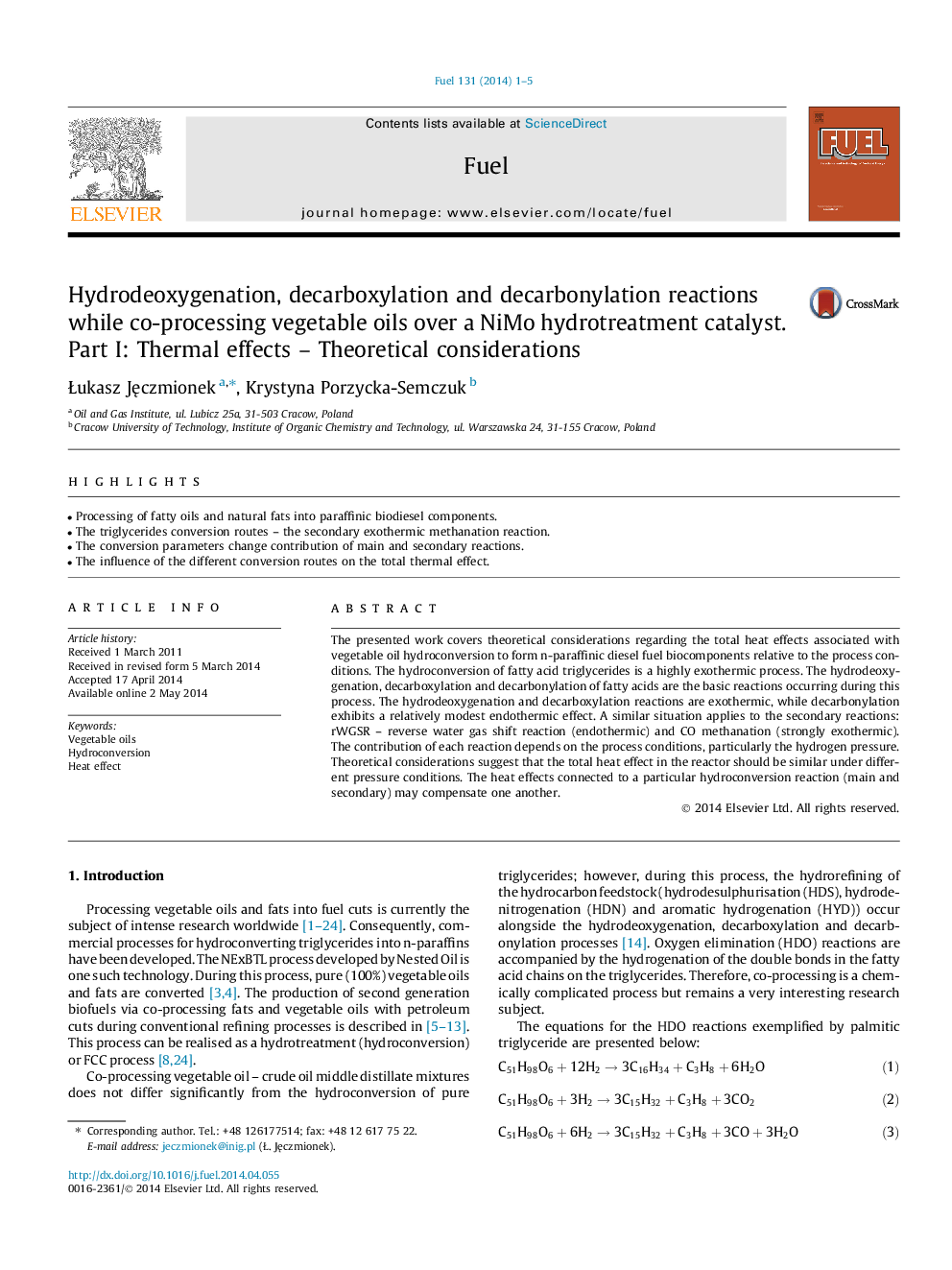| Article ID | Journal | Published Year | Pages | File Type |
|---|---|---|---|---|
| 206215 | Fuel | 2014 | 5 Pages |
•Processing of fatty oils and natural fats into paraffinic biodiesel components.•The triglycerides conversion routes – the secondary exothermic methanation reaction.•The conversion parameters change contribution of main and secondary reactions.•The influence of the different conversion routes on the total thermal effect.
The presented work covers theoretical considerations regarding the total heat effects associated with vegetable oil hydroconversion to form n-paraffinic diesel fuel biocomponents relative to the process conditions. The hydroconversion of fatty acid triglycerides is a highly exothermic process. The hydrodeoxygenation, decarboxylation and decarbonylation of fatty acids are the basic reactions occurring during this process. The hydrodeoxygenation and decarboxylation reactions are exothermic, while decarbonylation exhibits a relatively modest endothermic effect. A similar situation applies to the secondary reactions: rWGSR – reverse water gas shift reaction (endothermic) and CO methanation (strongly exothermic). The contribution of each reaction depends on the process conditions, particularly the hydrogen pressure. Theoretical considerations suggest that the total heat effect in the reactor should be similar under different pressure conditions. The heat effects connected to a particular hydroconversion reaction (main and secondary) may compensate one another.
